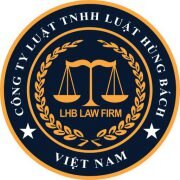Best Discrimination Lawyers in Vietnam
Share your needs with us, get contacted by law firms.
Free. Takes 2 min.
Or refine your search by selecting a city:
List of the best lawyers in Vietnam
About Discrimination Law in Vietnam
Discrimination laws in Vietnam are designed to promote equality and prevent unjust treatment based on characteristics such as race, gender, age, disability, religion, and more. Although the Vietnamese legal framework for addressing discrimination is not as comprehensive as in some other countries, Vietnam has made strides in recent years with its commitments to international human rights conventions, such as the Convention on the Elimination of All Forms of Discrimination Against Women (CEDAW) and the Convention on the Rights of Persons with Disabilities (CRPD).
Why You May Need a Lawyer
There are several scenarios in which individuals may seek the assistance of a lawyer for issues related to discrimination in Vietnam:
- Workplace Discrimination: When facing unequal treatment, harassment, or lack of promotion opportunities based on gender, ethnicity, or other factors.
- Housing Discrimination: Unequal access to housing options, often based on ethnic or socioeconomic status.
- Access to Services: Issues arising from being denied access to services or facilities on discriminatory grounds.
- Education: Cases where students face discrimination at educational institutions.
- Legal Representation: Representation in cases involving the violation of human rights or obtaining foreign legal representation.
- Disability Rights: Seeking accommodations or addressing discrimination in the context of disabilities.
Local Laws Overview
Vietnam's legal framework includes several laws and regulations aimed at preventing discrimination:
- Labour Code: Prohibits discrimination in employment based on factors such as gender and ethnicity, and promotes equality in the workplace.
- Law on Gender Equality: Advocates for the elimination of gender-based discrimination and promotes women's rights and opportunities.
- Law on Persons with Disabilities: Ensures rights and access to equal opportunities for persons with disabilities.
- Civil Code: Includes provisions that can be used to address violations of personal rights.
While these laws provide a foundation, enforcement and public awareness remain ongoing challenges, necessitating the role of legal professionals in navigating and advocating within the system.
Frequently Asked Questions
What is considered discrimination under Vietnamese law?
Discrimination refers to any distinction, exclusion, or restriction made on the basis of characteristics such as race, gender, age, disability, etc., which has the purpose or effect of nullifying or impairing the recognition, enjoyment, or exercise of equal rights.
How can I report discrimination in Vietnam?
You can report discrimination to local authorities or governmental bodies such as the Vietnam Women's Union or relevant state agencies. For legal action, consulting a lawyer is recommended.
Can I file a lawsuit for workplace discrimination?
Yes, you can file a lawsuit if you have evidence of discrimination at your workplace. It's advisable to document incidents and consult a lawyer to understand the process and strengthen your case.
What legal protections are available for women facing discrimination?
The Law on Gender Equality, along with various international conventions, provide legal frameworks to protect women against discrimination and promote equality in Vietnam.
Are there specific protections for disabled individuals?
Yes, the Law on Persons with Disabilities outlines the rights and protections for individuals with disabilities, including access to education, employment, and public services.
What role do NGOs play in combating discrimination in Vietnam?
NGOs often work to raise awareness, provide resources, and assist individuals in navigating legal channels to seek justice and enforce anti-discrimination protections.
How does the Vietnamese legal system handle discrimination in education?
The legal system mandates non-discrimination in education, ensuring equal access and opportunities for all students, although challenges in implementation persist.
Can foreigners file discrimination claims in Vietnam?
Foreigners can file claims if they face discrimination within the country, although seeking local legal assistance might be necessary to navigate the system effectively.
How does one prove discrimination in a legal setting?
Proving discrimination typically requires documenting incidents, gathering witness testimonies, and demonstrating disparate treatment compared to others in similar situations.
Is mediation a viable option for discrimination disputes?
Mediation can be a less formal and often effective way to resolve discrimination disputes, and it can be pursued before or alongside legal action.
Additional Resources
Here are some resources and organizations that can provide assistance and information:
- Vietnam Women's Union: Advocacy and support for women's rights and equality.
- Vietnam Federation on Disability: Offers resources and support for individuals with disabilities.
- Ministry of Labour, Invalids and Social Affairs: Central government body that handles labor-related issues, including discrimination.
- Various NGOs: Local and international NGOs work within Vietnam on human rights and anti-discrimination initiatives.
Next Steps
If you are facing discrimination and believe you need legal assistance, consider taking the following steps:
- Document All Incidents: Keep a detailed record of any incidents, including dates, times, locations, and descriptions of what occurred.
- Consult a Lawyer: Seek advice from a lawyer specializing in discrimination or human rights law to explore your options and potential legal pathways.
- Contact Relevant Authorities: Reach out to local governmental bodies or organizations that can provide guidance and advocacy services.
- Consider Mediation: Evaluate whether mediation could resolve your issue effectively and amicably as a first step.
- Prepare for Legal Action: If necessary, be prepared to pursue legal action by gathering evidence and working with your lawyer to build a strong case.
Taking action can help combat discrimination and protect your rights while potentially driving positive change in the broader community.
Lawzana helps you find the best lawyers and law firms in Vietnam through a curated and pre-screened list of qualified legal professionals. Our platform offers rankings and detailed profiles of attorneys and law firms, allowing you to compare based on practice areas, including Discrimination, experience, and client feedback.
Each profile includes a description of the firm's areas of practice, client reviews, team members and partners, year of establishment, spoken languages, office locations, contact information, social media presence, and any published articles or resources. Most firms on our platform speak English and are experienced in both local and international legal matters.
Get a quote from top-rated law firms in Vietnam — quickly, securely, and without unnecessary hassle.
Disclaimer:
The information provided on this page is for general informational purposes only and does not constitute legal advice. While we strive to ensure the accuracy and relevance of the content, legal information may change over time, and interpretations of the law can vary. You should always consult with a qualified legal professional for advice specific to your situation.
We disclaim all liability for actions taken or not taken based on the content of this page. If you believe any information is incorrect or outdated, please contact us, and we will review and update it where appropriate.
Browse discrimination law firms by city in Vietnam
Refine your search by selecting a city.
















